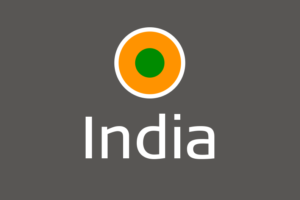India’s Consolidated Revised Guidelines of Ministry of Home Affairs (MHA) for containment of COVID-19 epidemic
Health insurance is now a mandatory employee benefit in India after the Ministry of Home Affairs (MHA) issued an order on April 15, 2020 (refer to clause no. 5, Annexure II). This order is in response to the COVID-19 pandemic. Taking cognizance of the MHA’s order, IRDAI, India’s Insurance Regulator, issued a circular on April 16 advising both general and health insurers to offer affordable comprehensive health insurance with simple wordings and conditions on either individual or groups basis. Employers who buy these plans must be able to continue them “for all time.”
Eight pre-underwritten plans have been launched since IRDAI’s circular was issued, with features described below.
Key features of coverage of 8 plans in the market
- In-patient hospitalization coverage
- Sum Insured limits range from INR 50,000 to INR 1.5 million
- 30 days pre- and 60 days post-hospitalization expenses
- Pre-existing conditions: one plan covers PED; one covers PED subject to premium loading; 6 plans do not cover PED
- Room rent linked to sum insured (in-patient hospital room)
- Only one plan offers maternity with a six month waiting period condition
- Ambulance
- COVID hospitalization covered but not home quarantine
- Coverage for employee only, as dependents are not required to be covered under the MHA’s order
Each plan defines the covered member differently
a) contractual/management trainee/temporary employee/worker
b) worker
c) on-roll employees/contract workers
d) contractual utility staff & workers
e) employee
Therefore, the choice of carrier may be limited on the basis of each employer’s category of employee. Also, an employer is free to choose a customizable group health plans with more add on covers.
Exemption for employees covered under Employees State Insurance Scheme
Employees who come under the purview of the Employees State Insurance Scheme (ESI) do not require employer-sponsored health insurance.
Fine and imprisonment for violators of Standard Operating Procedures
The Ministry of Home Affairs has ordered companies to implement Standard Operating Procedures in their business premises and for employees’ transport to work post lifting of the lockdown (see pages 11-13 of this report).
- Annexure I, National Directives for COVID-19 Management, and Annexure II, Standard Operating Procedure for Social Distancing for Offices, Workplace, Factories and Establishments address these protocols (see pages 11 and 12 of the same report).
- Violators of the Directives and Standard Operating Procedures face fines and imprisonment as defined in Sections 51-60 of the Disaster Management Act 2005. Directors and officers of companies that fail to follow these requirements will be held accountable and liable. (Refer in particular to Section 58. Offense by Companies.)
This legislative update for employers in India is provided by Prudent, Asinta’s Partner in India.

